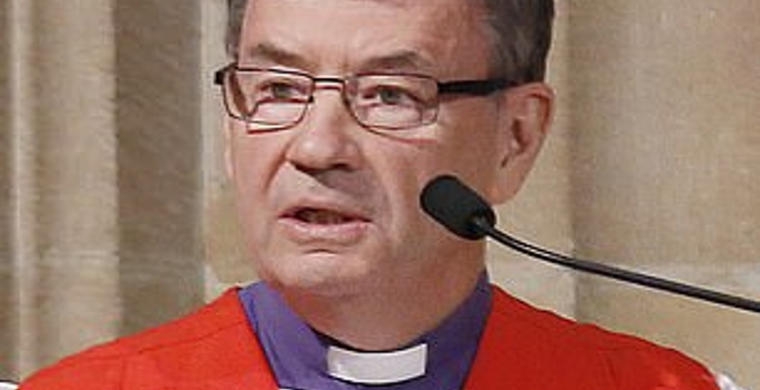SYDNEY: Anglican Archbishop Outspoken Critic of Fetal Tissue for Vaccine
By David W. Virtue, DD
www.virtueonline.org
September 1, 2020
Three archbishops, including Sydney Anglican Archbishop Glenn Davies have written to Prime Minister Scott Morrison criticizing the AstraZeneca vaccine candidate because it uses research cells from a foetus aborted more than 40 years ago, the Daily Mail reports.
Catholic Archbishop of Sydney Anthony Fisher, Anglican archbishop Glenn Davies and Greek Orthodox Archbishop Makarios Griniezakis wrote a joint letter to Mr. Morrison opposing the Oxford University vaccine on 'ethical grounds'.
Australia's most powerful Catholic archbishop said he is 'deeply troubled', as the vaccine candidate has been developed from a kidney cell line called HEK-293.
The HEK-293 cell was first taken from an aborted foetus in Holland in 1973.
It has been the second most widely used line in cell biology for more than 45 years, contributing to a wide variety of life-saving medical advances, including cancer research.
Monash Institute of Pharmaceutical Sciences professor Colin Pouton said the HEK-293 cell was regularly used in virus research.
'They're using the cell line as a packaging system to make the virus,' he told the ABC.
'It's not like people are using a new cell line - it's already there, so in many respects the ethical issue is in history.'
Anglican Archbishop Glenn Davies signed the letter opposing the vaccine. Secular Party President John Perkins said prayer would not create a vaccine, medical research would.
The religious leaders' letter says the churches want the Federal Government to pursue alternative vaccines that are have not used foetal cells in their development.
'It is important that the government does not create an ethical dilemma for people,' Archbishop Fisher wrote on Facebook.
Religious people may not want to benefit from a vaccine where the cells were cultivated from 'the death of the baby girl', he wrote in Catholic Weekly on Monday.
'Some will feel deeply conflicted whichever way they go. And it will be socially divisive,' he wrote.
Archbishop Fisher denied he had called for an outright boycott of the vaccine, saying he just wanted the government to make arrangements for alternatives.
'Most religious believers are not anti-vaxers. In fact, most of us are praying for a vaccine against COVID-19,' he wrote on Monday.
'The production of an effective vaccine requires diligent research. Prayer has no role to play. Gods do not intervene in the real world,' he said on Monday.
'It is not in the public interest for the church to be disparaging vaccines.'
Mr. Morrison has locked in a deal with pharmaceutical giant AstraZeneca to secure a potential coronavirus vaccine if its Oxford University phase three trials prove successful.
There are more than 100 vaccines in development around the world as scientists, governments and other organizations race to find a safe, effective inoculation.
In June, The Lancet reported that 10 candidates had already advanced to clinical trials, as companies including Moderna, Pfizer, Inovio and Sinopharm all race to be the first with a working vaccine.
The AstraZeneca candidate is considered the frontrunner as it is already in Phase Three trials at Oxford University.
Deputy Chief Health Officer Dr Nick Coatsworth spoke out to reassure the public on ethical grounds on Monday.
'I think we can have every faith that the way they have manufactured the vaccine has been against the highest of ethical standards internationally,' he said.
Nobel laureate and immunology Professor Peter Doherty said he believed the process was ethical.
'It's an established cell line being used in lots of applications,' he said.
The rubella, hepatitis A and rabies vaccine, in use for decades, all use cell lines originally derived from human foetal tissue, ABC news reported.
END














